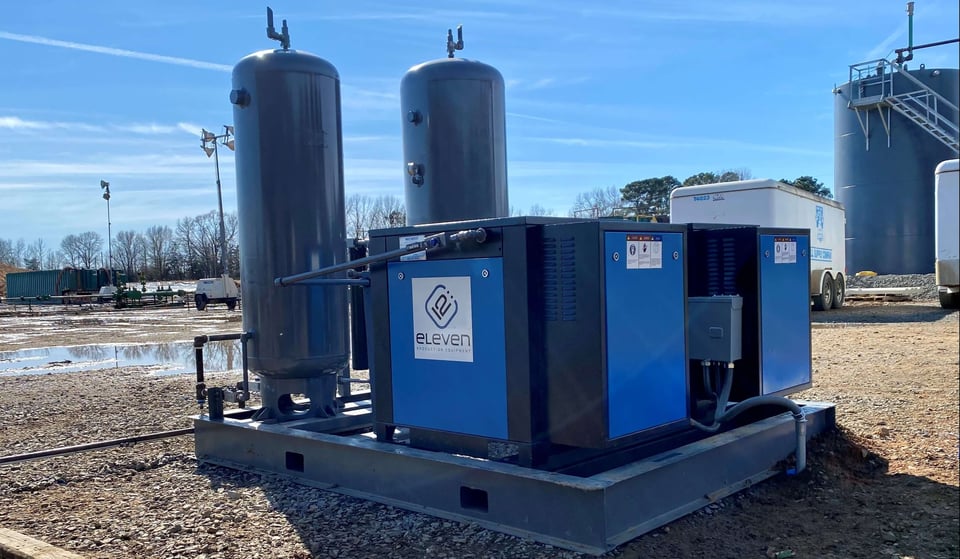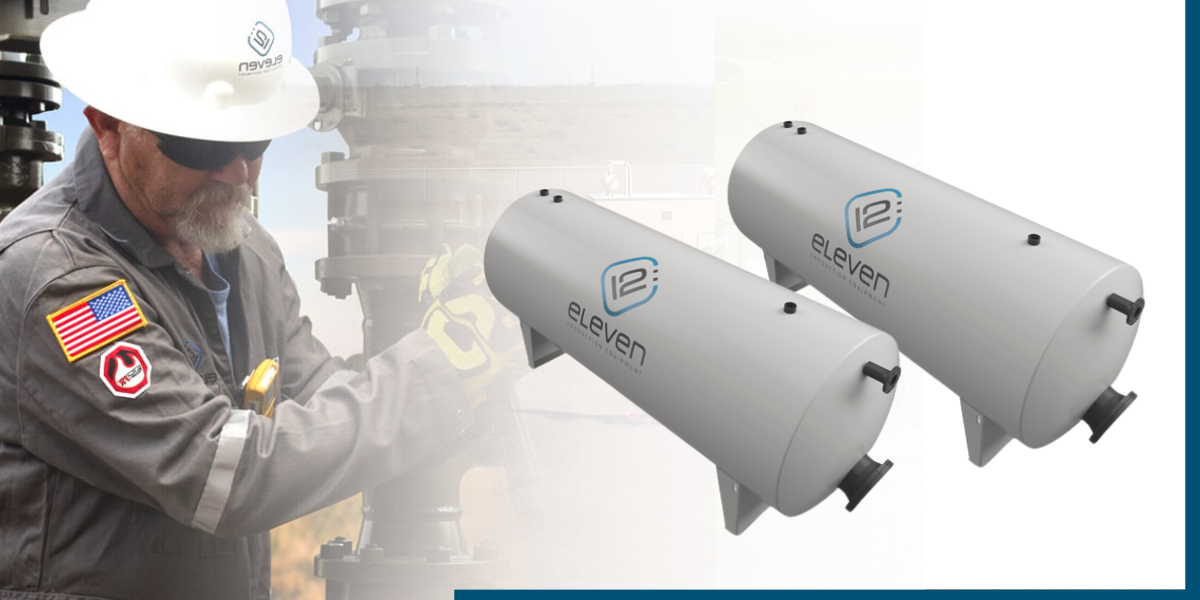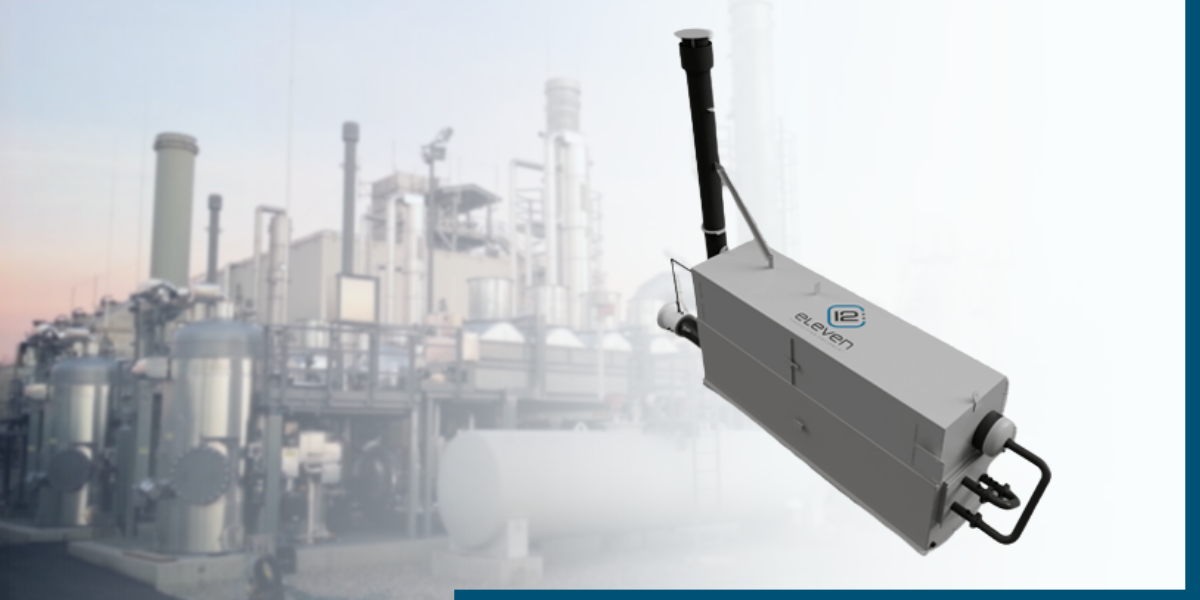Free Water Knockout (FWKO): What You Need To Know
Free water knockouts (FWKO) are an essential component in the oil and gas industry, designed to remove any free water present in the production...
5 min read
12:Eleven Team July 10, 2023

The oil and gas industry is a vital component of the world's economy, and will be for decades to come, providing energy to power businesses and homes around the globe. However, the industry has come under scrutiny (warranted or unwarranted remains up for debate) in recent years due to its impact on the environment and society.
Due to this new level of attention in recent years, the oil and gas industry has adopted additional measures to improve their environmental, social, and governance (ESG) performance. One important aspect of ESG in the industry is the use of clean instrument air, which plays a critical role in ensuring safe and efficient operations.
In this blog post, we will explore ESG and clean instrument air, along with other critical topics related to this subject.
ESG stands for Environmental, Social, and Governance. It is a framework used by companies to evaluate and manage their performance in these areas. The environmental component of ESG focuses on minimizing the perceived negative impact of business operations on the environment.
The social component focuses on promoting social responsibility. The governance component focuses on ensuring that companies are managed effectively and transparently, with accountability to stakeholders.
ESG (love it or hate it) refers to a set of criteria that investors and stakeholders use to evaluate a company's sustainability and ethical practices. In the oil and gas industry, ESG practices can include reducing greenhouse gas emissions, conserving natural resources, and minimizing waste. According to a report by Deloitte, companies that implement ESG practices can benefit from improved financial performance, reduced risks, and enhanced stakeholder relationships.
Furthermore, implementing ESG practices can help companies meet the growing demand of certain regulatory and industry groups for sustainable and responsible business practices. In a survey by EY, 81% of executives in the oil and gas industry agreed that there is an increased expectation for companies to demonstrate ESG practices.
Instrument air is a critical component in the oil and gas industry. It is compressed air that is used to power instruments and control systems that are used in the production, processing, and transportation of oil and gas. Instrument air is typically produced using air compressors, and it must meet certain quality standards to ensure that it is free of contaminants that could damage sensitive instruments and control systems.
Clean instrument air is compressed air that is free from contaminants and is used to power instruments and control systems in the oil and gas industry. Contaminants in instrument air can damage sensitive instruments and control systems, leading to equipment failure and safety incidents. Therefore, using clean instrument air is essential to ensuring safe and efficient operations.
Instrument air is used in a wide range of applications in the oil and gas industry, including:
Instrument air is used to power the control systems that are used to regulate the flow of oil and gas through pipelines and processing equipment. These systems must operate accurately and reliably to ensure safe and efficient operations. In many of these control applications, reliable fluid handling systems play a critical supporting role by maintaining steady flow rates and pressure levels across complex process environments.
Instrument air is used to power instruments that are used to measure parameters such as temperature, pressure, and flow rate. These measurements are critical to ensuring that the production and processing of oil and gas are carried out safely and efficiently.
Instrument air is also used to power pneumatic tools and equipment that are used to maintain and repair production and processing equipment. These tools must operate reliably to ensure that maintenance and repair work is carried out safely and efficiently.
There are many potential outcomes of implementing ESG practices in the oil and gas industry, including:
Implementing ESG practices can possibly help companies reduce their environmental impact by minimizing waste and water usage and reducing emissions. This can potentially lead to a more sustainable and responsible industry. According to an article by The Guardian, oil and gas companies that implement ESG practices can reduce their environmental impact and attract more socially conscious investors.
Clean instrument air is critical to ensuring safe and efficient operations in the oil and gas industry. Contaminants in instrument air can cause damage to sensitive instruments and control systems, leading to equipment failure and safety incidents. Therefore, using clean instrument air can improve safety by reducing the risk of accidents and spills. According to an article by Oilfield Technology, implementing ESG practices can also lead to a safer work environment for employees.
In today’s political and regulatory environment Companies that implement ESG practices could likely enhance their reputation by demonstrating their commitment to environmental and social responsibility, promoting transparency and accountability, and improving stakeholder relationships. According to an article by Forbes, companies that prioritize ESG practices can enhance their reputation and attract more socially conscious customers and investors.
One important aspect of ESG in the oil and gas industry is the use of clean instrument air. Clean instrument air is essential to ensuring safe and efficient operations, and it plays a critical role in reducing the industry's environmental impact.
There are several reasons why clean instrument air is important in ESG:
Clean instrument air is essential to protecting the sensitive instruments and control systems that are used in the oil and gas industry. These systems must operate accurately and reliably, and any contamination in the instrument air can cause damage that can lead to equipment failure and safety incidents.
Clean instrument air can also help minimize emissions by ensuring that combustion processes are operating efficiently. Contamination in instrument air can lead to incomplete combustion, which can produce more emissions and contribute to climate change.
Clean instrument air is also essential to reducing waste. Contamination in the air can cause equipment to malfunction, leading to inefficient operations and an increase in waste products.By ensuring that instrument air is clean and free of contaminants, ESG practices can help companies improve safety, reduce emissions, minimize waste, and enhance their reputation.
With the right processes and equipment in place, organizations can ensure that they are using clean instrument air to meet their ESG objectives and improve their operations.
In conclusion, the oil and gas industry is essential to meeting the world's energy needs, but it can also have both a positive or negative impact on the environment and society. Therefore, engineers may implement practices and use clean instrument air to provide results that should ensure a sustainable and responsible industry.
Companies can benefit from improved environmental performance, enhanced safety, and a strengthened reputation by implementing practices, promoting transparency and accountability, and investing in equipment maintenance and employee training. With a focus on sound environmental stewardship, the industry has and should continue to meet the world's energy needs for decades to come, while minimizing its impact on the environment and society.
Discover the strengths that the specialists in innovation and customization bring to production and process equipment, and innovative ESG solutions (including our Air Compressor Packages) Contact 12:eleven and experience quality that is reliable, efficiency that is proven and service that is unsurpassed.
We invite you to request a quote for our products or services, or to learn more about our ESG solutions including our Air Compressor packages.
Oil and Gas Production and Process Equipment - In this blog post we will dive into the most important pieces of oil and gas production equipment. We will also talk about how to maintain them properly.
Deloitte. (2020). ESG and the oil and gas industry: driving long-term value through environmental and social responsibility. Retrieved from https://www2.deloitte.com/us/en/insights/industry/oil-and-gas/esg-in-oil-and-gas.html
EY. (2020). Energy transition series: oil and gas. Retrieved from https://www.ey.com/en_gl/oil-gas-energy/energy-transition-series-oil-and-gas
Compressed Air Best Practices. (2019). Clean instrument air for the oil & gas industry. Retrieved from https://www.airbestpractices.com/industries/oil-gas/clean-instrument-air-oil-gas-industry
The Guardian. (2019). How oil and gas companies can cut their environmental impact. Retrieved from https://www.theguardian.com/sustainable-business/2019/jun/19/how-oil-and-gas-companies-can-cut-their-environmental-impact
Oilfield Technology. (2020). How ESG can promote safety and environmental protection in the oil and gas industry. Retrieved from https://www.oilfieldtechnology.com/special-reports/05112020/how-esg-can-promote-safety-and-environmental-protection-in-the-oil-and-gas-industry/
As a specialty company providing custom design, engineering and fabrication of production and process equipment, we are dedicated to doing what’s right for our customers and passionate about creating value on every project.
We leverage the field expertise of our design and engineering group together with our diversified manufacturing capabilities to deliver a broad range of innovative surface production equipment - including Separators, Treaters, Free Water Knock Outs, Bulk and Test Packages, Indirect Line Heaters, Gas Production Units, Gas Dehydration Units, Glycol Contact Towers, Vapor Recovery Towers, Oil Stabilizing Towers.

Free water knockouts (FWKO) are an essential component in the oil and gas industry, designed to remove any free water present in the production...

Gas Production Units (GPUs) are a crucial component of the oil and gas industry. They play a significant role in the extraction, processing, and...

Piping modules and spools are an important part of any piping system. They help to keep the fluid in the system moving by providing a path for it to...